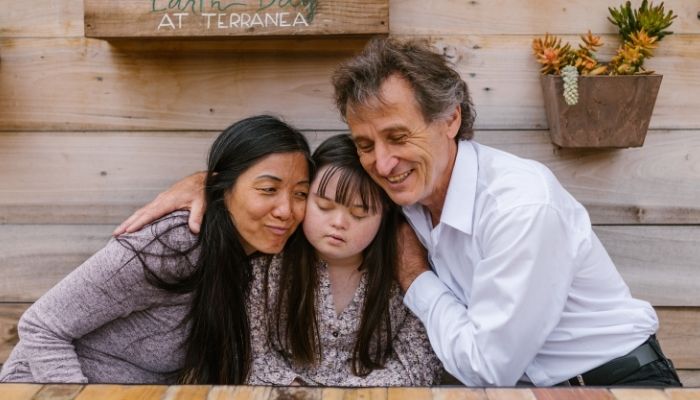Everyone wants to see a healthy child growing in a normal way, as other children do in the same age group. But, not all parents are that lucky, some give birth to children with autism symptoms. Also, known as ASD or Autism Spectrum Disorder, this is a disorder with abnormal brain functioning due to abrupt brain development. Catching the early signs of autism in your child will help you improve your child’s autism signs to a great extent. Moreover, for such children, one needs to give extra care and get in touch with child psychologists, and speech and occupational therapists.
Let us help you understand the early signs of autism and how to treat this disorder in children?
What is Autism Spectrum Disorder?
Autism Spectrum Disorder or ASD is a health disorder wherein brain development gets impacted and one finds it difficult to interact and socialize with others. There occurs a hindrance in communications and overall social interaction.
ASD signs are often detected in children of tender age, as they start showing signs of difficulty grasping things in school and at play. This doesn’t mean that there are no signs of autism in adults, even adults may show some signs but the disorder in most of such cases was present in them right from their childhood.
What Causes Autism?
Talking about what causes autism spectrum disorder, there is not a single known cause identified by doctors. Since this is a complex disorder and symptoms vary too in different ways, identifying the exact cause of autism has become all the more difficult. Still, two main things that play an important role in causing autism in a child are:1. Genetics Factor
Children with autism disorder may get impacted due to a genetic disorder like fragile X syndrome or Rett syndrome. Whereas, some children experience the symptoms of autism due to disorders in the genes that affect their brain development.2. Environmental Factor
Some researchers have revealed that sometimes environmental factors like viral infections, complications during pregnancy, certain medications, and air pollutants also often trigger signs of autism spectrum disorder in children.Common Signs of Autism in Children
In order to cure autism in children through several therapies and treatments, it is important to first identify the early signs of autism in children. Such children show differences in social, communication, and behavior patterns.
So, let us talk about these signs and symptoms of autism one by one:
1. Social Interaction Differences in Children with Autism
- Avoiding eye contact with others
- Lack of facial expressions and response to parent’s smile
- Lack of interest in activities
- No concern for others in the society
- Difficulty to make friends
- No interest in grabbing anyone’s attention
2. Behavioral Differences in Children with Autism
- Show stereotypic behavior of flapping hands, walking on toes, twirling fingers, and rocking or spinning
- Difficulty to change regular routine or pattern
- Obsession with some unusual activities and repeating them again and again
- Not playing with the whole toy but only with a part of the toy
- Not crying when in pain
- Not fearing when in danger
- Looking or staring at objects at an unusual angle
- Being very sensitive to sounds, lights, touch, and smells
3. Communication Differences in Children with Autism
- Delay in speech for over 24 months
- Not sharing anything with others
- Repeating or echoing things they hear without understanding them
- Referring others as “I” and mixing personalities
- Lack of interest in communicating
- Difficulty to start or continuing a conversation
- Difficulty to memorize songs, letters, and numbers
Other Signs of Autism in Children
Besides the above-mentioned signs, sometimes children suffering from ASD show the following signs too:- Hyperactive-ness or Impulsiveness
- Stress, Anxiety, and Excessive Worry
- Seizure Disorder or Epilepsy
- Delay in Learning and Cognitive Skills
- Delay in Movement Skills
- Delay in Language Skills
- Emotional Reaction or Unusual Mood Swings
- Sleeping or Eating Disorders
- Gastrointestinal Issues like Constipation, Diarrhea
Signs of Autism in Adults
Now, as we said earlier, autism is also seen in adults. Some signs of autism in adults are:- Difficulty to express what they feel
- Being rude or blunt with others without intention
- Being very anxious when in a social circle
- Difficulty to understand others
- Difficulty to make friends and bonding with others
Diagnosis of Autism
Autism is firstly identified by checking the child’s normal behavior at home and in society. When something seems abnormal, the following people will help you diagnose whether it is ASD or something else:- Child Psychologists
- Occupational Therapists
- Language and Speech Pathologists
Treatment of Autism
To be very frank, as such there is no sure-shot cure for people suffering from autism. But, certain therapies can benefit children showing early signs of autism. Some of these therapies are:- Speech Therapy
- Physical Therapy
- Play Therapy
- Occupational Therapy
- Behavioral Therapy
Other Alternative Therapies
Other than the above-mentioned treatment therapies, autism symptoms can be relieved to an extent by the following alternative therapies:- Chelation Therapy
- Hyperbaric Oxygen Therapy
- Melatonin Dose Therapy
- High-Dose Vitamin Therapy


